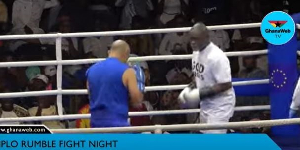Politics of Tuesday, 18 November 2008
Source: www.eurasiagroup.net
Strong performance by third party challenger in debate
GHANA/ELECTIONS: Strong performance by third party challenger in debate makes runoff increasingly likely
In a 29 September spirited debate between Ghana's leading presidential contenders ahead of the highly competitive December 7 general elections, the third party minor contender, US-trained management consultant and former Public Services Reform Minister Paa Kwesi Ndoum emerged narrowly as the winner according to local radio stations. If Ndoum's center-left Convention Peoples Party (CPP) wins between 8% and 10% of the first round vote, instead of 5% or less, a runoff is all but assured. One of Sub-Saharan Africa's most stable reforming economies, Ghana is the world's second largest cocoa exporter, Africa's second largest gold exporter, and is on course to become a major marginal oil producer.
Despite the increasing number of self-described democratic political systems in Africa, most Sub-Saharan Africa countries do not have strong opposition parties, and incumbency remains the most powerful guarantee of election success. Ghana's competitive political landscape - where most presidential elections are very close and won by low single digits - is therefore an outlier on the continent. The 29 September presidential debate was therefore itself a novelty, and a rare occurrence. A second presidential debate is scheduled in a fortnight. While the major candidates performed creditably, the incredibly strong and crisp performance by Paa Kwesi Ndoum's has the possibility of increasing his vote share at the expense of both the countries two largest political parties and forcing the presidential elections into a second round vote in December. Ghana's constitution requires that the eventual winner of the presidential race get more than 50% of the vote cast.
Ghana's 2008 general election landscape has generally favored the ruling center-right government. However recent dramatic increases in inflation and interest rates have hit middle class and urban dwellers who have in the past five years increased their purchases of household goods, cars and real estate through borrowings from local banks. As inflation has risen to almost 20% and short-term interest rates have risen to 17% from about 12% in 2007, banks have naturally passed off the increases to borrowers thereby increasing the monthly payments that middle class workers have to pay on their consumer, auto and mortgage loans. An increase of the yield on 90-day treasury bills from about 10% to almost 30% in recent months will eventually force banks to lend to the government at a risk-free rate rather than to risky consumers. This aspirational large middle class of urban dwellers are exactly the type of voters who are likely to be drawn to the third party platform of the CPP and the technocratic competence and 'management-consultant speak' of Ndoum.
In a potential runoff it is not exactly clear which of Ghana's two large political parties Ndoum will support. Formerly a member of outgoing President John Kuffour's cabinet, he has since become more forceful in his criticism of Kuffour's ruling center-right New Patriotic Party (NPP). Moreover the more stridently leftist leadership team of the CPP will likely make it much much harder for Ndoum to throw his weight to the NPP in a runoff. Ndoum is therefore likely to remain either neutral or even possibly agree to join the major center-left opposition party, with which has had a working-but-distant relationship in the past.
Ndoum may be simply on course to become a kingmaker in six weeks. He may seek assurances that he be appointed as finance minister in order to throw his weight behind the NDC or NPP. However Ndoum's tough nationalist stance on the new emerging energy sector and generally activist and interventionist view of micro economic management may push to him likely ally more with the center-left NDC rather than the center-right NPP.










